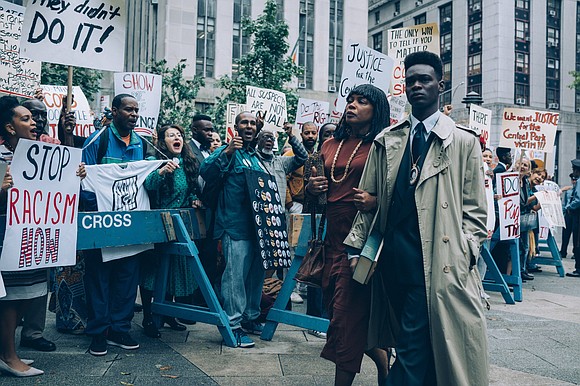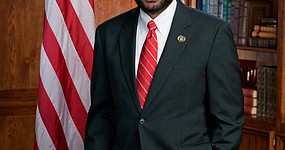'When They See Us' Makes a Powerful Case To Be Seen
CNN/Stylemagazine.com Newswire | 6/7/2019, 12:41 p.m.
The miscarriage of justice that surrounded the Central Park Five should by now be well known, but the details of the case, as reenacted, provide the inherent power of "When They See Us," a Netflix miniseries that's strongest at the beginning and end and sags somewhat in the middle.
Directed and co-written by Ava DuVernay, the opening chapter is a textbook on police and prosecutorial abuse, as the New York authorities bullied terrified and confused teenagers of color into "confessions" that amounted to pointing fingers at others under intense duress.
The crime in question was the rape and brutal beating of a jogger in Central Park, with police rounding up the teens in their zeal to close the case. "These are not kids," prosecutor Linda Fairstein, played by Felicity Huffman, announces almost immediately, setting the tone for their treatment by labeling them "animals."
The first hour unfolds largely through those interrogations -- presented in spare, compelling fashion -- as well as the mystified reactions of the parents, featuring characters played by Michael K. Williams, Aunjanue Ellis, Niecy Nash and John Leguizamo. (The star-studded roster doesn't end on screen, with Oprah Winfrey and Robert De Niro among the executive producers.)
The list of misconduct included police questioning minors without adults present, intimating that confessing offered "the road to home" and ignoring evidence that might have undermined the timeline or caused the case to unravel. Part two takes place largely within the courtroom, while the third and fourth chapters deal with the years spent in prison, and the by-then young men's struggles readjusting to society.
It's during that frame where "When They See Us" drifts a bit, laboring to cover multiple characters over a quarter-century span. In hindsight, the narrative might have benefited either from narrowing the focus or having a couple of extra chapters to further flesh out those storylines.
Nevertheless, the miniseries offers a damning window into the criminal-justice system, from the media's willing adoption of the "wilding" narrative to then-private citizen Donald Trump wading into the controversy by advocating for the death penalty -- eliciting a tart rejoinder from a parent who suggests (in what feels a bit too on the nose) that the real-estate developer's 15 minutes of fame were nearly up.
Although the precipitating event took place 30 years ago, as DuVernay's earlier documentary "The 13th"illustrated, the subject matter couldn't feel more relevant, with a passion and urgency that ultimately triumphs over any of the structural flaws. It's especially sobering to witness what the teens endured, then realize that those wrongly convicted -- Antron McCray, Kevin Richardson, Yusef Salaam, Raymond Santana and Korey Wise -- are now in their 40s.
While exoneration finally came, the cops and prosecutors responsible are depicted as being largely unrepentant, and the damage -- not just to the central five, but rippling outward to those around them -- seems incalculable, no matter what price the parties eventually reached to settle a subsequent lawsuit.
For that reason and others, "When They See Us" makes a compelling case to be seen, and heard.
"When They See Us" premieres May 31 on Netflix.









